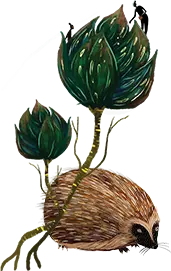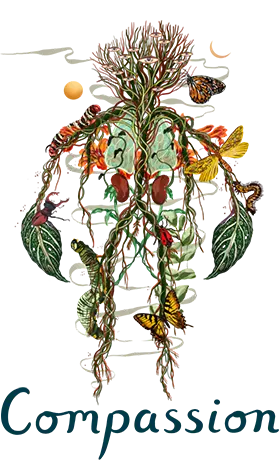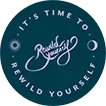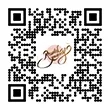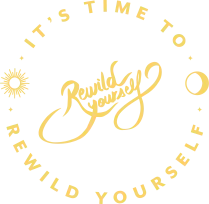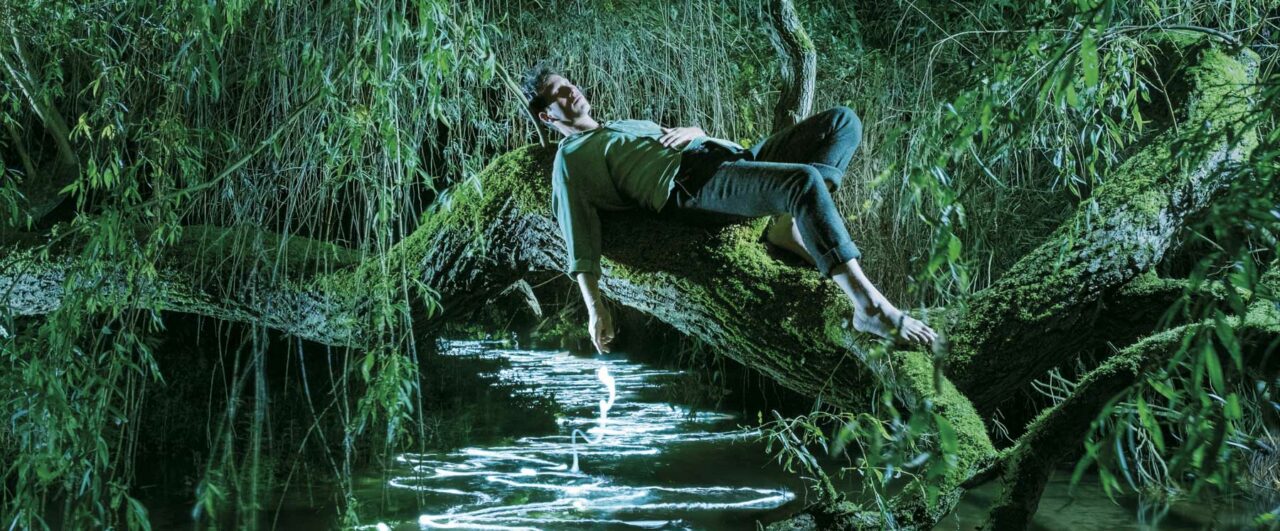
Review and deep dive into Sam Lee’s album: Songdreaming
Folk artist Sam Lee started releasing music in 2012, and Songdreaming (released March 2024) is Sam’s 4th album and most direct tribute to Nature yet, exploring our relationship and responsibility to it, as well as the ecological and climate crisis.
Cards on the table, this isn’t your traditional review, as I am incredibly biased. Sam is one of our ReWild Yourself Champions (class of 2024), is thoroughly talented and likable, and I have had the pleasure of meeting him a few times. So, spoiler alert…I unsurprisingly love this album and everything it represents. Early reviews elsewhere suggest I am not alone in that view (see here – and here).
My ‘review’ has very much a ReWild Yourself angle, looking at the themes of Nature and connection touched on in the album, of which there are many!
To hear Sam discuss the album himself, check out our interview from earlier this month
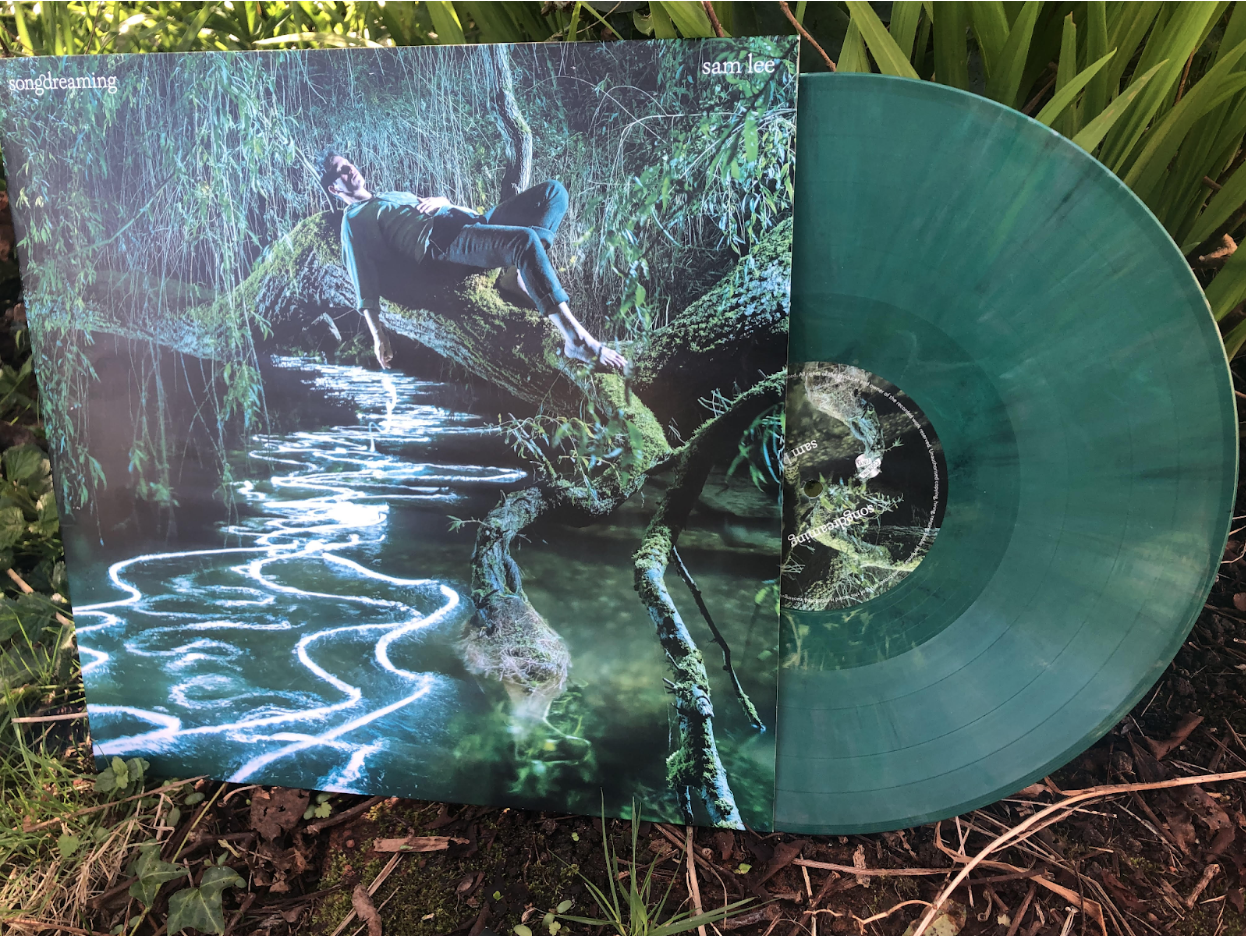
I treated myself to the vinyl for this, and it’s a beaut. Each record is pressed with eco-mix, a 100% recycled compound made of trimmed flash (leftover material from plastic moulds), so each will look slightly different. Mine is a split pea green, matching nicely the lush green dreamscape of the cover.
The vinyl sleeve contains both the lyrics to each song, but also short reflections from Sam on the meaning, inspiration and story of each track. I was initially in two minds about this, as I am a fan of the listener finding their own meaning. I soon relished these insights though (some of which I have shared in this review), greatly enriching the listening experience.
These tunes are not only deeply personal interpretations of folk songs, but part of a lineage – rooted in the land, history and culture. There is wisdom in them, powerful metaphors and lessons in stewardship and humanity, which Sam, his band, and producer, Bernard Butler, invite you to discover, mapped out across nine gorgeous tracks.
Track 1 – Bushes and Briars
Sam has put his own spin on this traditional folk song, filling it with ominous strings, wobbling double bass, and gunshot like snares. Atop of this foreboding soundscape, he sings in his characteristic rich baritone a song of reverence for the Nightingale and regret for what has been lost. In his own words, it is “an invitation to consider what appreciation in the age of extinction can feel like.”
The line, “Sometimes I’m plagued by all I should and must, and what we’ll leave behind…” will strike a chord with anyone battling with those same feelings of guilt and worry.
If only this brooding reckoning, rumbling in the background, was as clearly heard in the ‘real world’…It’s powerful stuff and a pretty punchy start to the album.
Track 2 – Meeting Is a Pleasant Place
This is a truly stunning track. According to Sam, it very much lays out the intention and central theme for the whole album:
“The song calls in a new idea of companionship for the journeys we make and imagines what stewardship for the land could be today, inherently petitioning for a permissive ‘open for all’ state in how we understand our place in nature.”
The lyrics themselves are a clear, open invitation for all to access and enjoy their right to Nature and its healing and nourishing benefits, with stanzas such as:
“May the sun warm gently on your face
The wind blow from behind
The ground be soft and in her embrace
All all you meet be kind.”
But it is the music that sells this promise, with measured arrangements held back till about the midway point, where things really soar. A fuzzy, brooding electric guitar line, sounding like it has been dialed in from an ancient century, drops out, making space for a gentle acoustic guitar and the ‘Trans Voices’ choir to take centre stage, backing Sam with beautiful harmonies and counter vocal lines, defiantly declaring a “…time of songdreaming”. The word Songdreaming is clearly inspired by the idea of aboriginal songlines – a tool to navigate our way back to the land, as well as the cultural wisdom held in our folkloric heritage.
The choir itself is made up entirely of gender non-binary and trans singers. Not only are they wonderful throughout the album, but they are fitting additions to songs like Meeting Is a Pleasant Place, which addresses themes of exclusion and access to nature, a particular issue for marginalised groups.
Track 3 – McCrimmon
This song is Sam’s own take on the iconic ‘MacCrimmon’ Lament. The MacCrimmons were pipers of the MacLeods of Skye, and ‘the most famous piping family in the world’. In 1745, after a premonition of his own death in battle, Donald Ban MacCrimmon composed the tune before then falling in the Jacobite rebellion of the same year. You can hear the original bagpipe tune here. According to Sam’s liner notes, the tune was then poetically adapted into a tragic lament of loss in the 19th Century.
With a few lyrical alterations, Sam has turned the song on its head, still full of emotion, but conjuring up awe and wonder, in place of woe and worry. It is a hymn to nature, with the only piping in this version done by the Curlew, a bird once common on farmland and moorland (though sadly threatened). Its distinctive ‘cur-lee’ call is a joy to hear here, backed by plucked double bass and violin.
Track 4 – Leaves of Life
As with McCrimmon, this is another example of a subtle but significant alteration to a traditional song, with profound effect. In this instance, it’s quite chilling.
Leaves of Life is a traditional folk/hymn, depicting the Seven Virgins witnessing the crucifixion of Jesus. In Sam’s version, the Seven Virgins are replaced with the idea of the seven generations that follow us. This is taken from the Native American Iroquois Nation’s philosophy that all decisions be taken considering the impact on the seven generations that follow. This is a powerful idea, which if it were to be truly implemented worldwide, would be transformative. There are some signs of hope. In my native Wales, the government passed the Future Generations Act, which holds a similar intention to the philosophy of the Iroquois Nation.
Safe to say, in the song, the future generations represented are not too happy with what they find, discovering a ‘weeping’ and ‘withered Mother Tree’. The effect of the repeated minor piano part, haunting electric guitar, and the low drone of the french horn, is slightly harrowing. It is a song of rage, and at times pretty confronting, especially when the choir enters in full force towards the end; a ghostly challenge from the spirits of future generations.
I’m not sure I could take a full album of this intensity, but as a standalone track, it feels pretty important. That sense of unease it makes you feel is no doubt wrapped up with the guilt, shame etc we all tend to quash in the face of unpleasant ecological realities.
Track 5 – Green Mossy Banks
This is probably my favourite on the album. It’s a paean to pilgrimage and “how walking will forever be the greatest form of self-discovery and answer-finding.”
When we asked Sam for advice on how people can connect to Nature, he told us, “…when you can, spend time walking alone. And when you’re walking, walk slower, and where possible, do some silent observations.”.
I think one of the reasons intentional walking in nature feels so good is that it is a form of ‘coming home’, a primitive, natural act that for years was vital to us as a species – to walk, to notice. This track captures that wonderful contentment. It’s spacious and dreamy, with plaintive piano, like delicate steps, and flute and violin easy on the breeze.
The lyrics are full of yearning, possibility and hope, and more than any other track, this one felt like an invitation to go outside, float out the open window to green vistas beyond. By the last lines, “Be peregrine, be pasture, be tiny, be vaster, Be as soft as green moss and be free” I was almost welling up. Time to blow away the cobwebs on the hills maybe!
A final reason I like this song is the line in the first verse, “To the wandering swear an allegiance, Renew an old contract to roam”. This reference to the ‘right to roam’, and access for all to the land and its benefits, couldn’t be more important. It is a movement that both Sam Lee and another of our RWY Champions, Nicola Chester, both actively support and write on, including in the upcoming collection of essays, Wild Service (out 25th April).
Track 6 – Aye Walking Oh
This track is intended as the flip side of Green Mossy Banks. In place of hope and expansiveness, the instrumentation here is equally beautiful, but at times unsettling, intentionally so, to represent “…that bittersweet sensation of separation and longing.”
The words are from the Robert Burns song, Ay Waukin O, a song of contrast – unrequited yearning amongst the abundance of summer. It starts Acapella, where we get the full hit of Sam’s voice (it really is a hell of an instrument!). Waves of instrumentation then follow, including throbbing strings, double bass and piano, before a wild flute solo finally breaks through the tension. It is a restless tune, and as Sam says, a “…cyclically -composed journey of revelation where emotions express themselves through sound better than any words can.” Enough said!
Track 7 – Dreams of the Returning
This song is about the pull of rivers, how they enchant us, and how we are drawn to them, and in Sam’s case, how we dream of them. This essence is also captured by the album cover art.
It is also a song about another species drawn to return to the river, the Salmon, “…a quixotic and defiant species living precariously between several worlds and facing huge uncertainty.”
The Atlantic salmon has long been known as ‘King of Fish’, admired for its beauty and strength. Sadly, this iconic migratory fish, like many others, has been in decline for decades, as a result of pollution, climate change and migration barriers. Their plight and resilience, as they endlessly battle up river, is a strong metaphor. This struggle is captured beautifully in the BBCs Wild Isles freshwater episode.
Unlike the other songs on this album, the words here are all original. They are dense and poetic, and couplets such as the ones below deserve to be poured over:
But gravity’s good solvent
A demise, a drift, a downtime
While sullies of pastoralists,
Disrupt alchemic rhyme.
They allude to another key theme, that of the pollution of our rivers. To many, this is a true tragedy of our times. Living near both the Usk and Wye, both heavily polluted and degraded, it is a tragedy I keenly feel. Nature connection is not always joyful. The sort of connection the song highlights can also inflict pain. We mourn the death of a river, but that pain is important, it is a warning of damage inflicted.
Like a river itself, the music here takes us on a journey: fast flowing and urgent one second, then sparse, slow and meandering the next. Used sparingly elsewhere in the album, the percussion here is particularly effective, establishing the varied rhythm of the river, with moments of thrilling cascade.
Track 8 – Black Dog and Sheep Crook
There are thousands of traditional songs recorded in vast collections and archives around the UK isles and across the world. Part of the skill of a song collector and folk artist is to spot those that speak to something salient for a modern audience. The folk tradition also involves the constant evolution of these songs, tweaking lyric and melody to mold them to the singer and the times. This is a tradition Sam has continued effectively throughout his career.
What’s interesting about this tune however, learned from the singing of Queen Caroline Hughes, a Dorsetshire Romany Gypsy, is that Sam chose to include it unadulterated. On its face, it is a song of rejection, between a shepherd and his sweetheart. What Sam has done is spotted its potential to tell us something new, “an emblematic moment of cultural shift”, as our perception of shepherds and farmers has shifted, in part, from those that tend the land to those that harm it.
Overuse of pesticides and fertilizers, overgrazing, machine compaction, monocultures, the stripping of hedgerows and trees and much more, has degraded and polluted much of our environment. It has cast the farmer as villain, when in many ways they are a victim to a system that has left many with little choice but to thrash the land in pursuit of maximal yields and narrowing profits.
It is a tension felt keenly here in Wales at the moment, with farmer protests against the recently introduced Sustainable Farming Scheme.
Sam’s version explores this tension, with a sinister edge, rising and falling with violin, quanun and a wandering baseline, presenting us with something that feels ancient as the hills, but confronts us with the sparse reality of their current state.
Track 9 – Sweet Girl Mcree
To me, the last song on the album feels like the perfect companion to Green Mossy Banks. It feels like the end of that pilgrimage, the point at which you run out of land, find a spot to sit, and rest your weary body. It also makes it the perfect way to end the album.
The song was collected from Ireland, from the Irish Traveller, Nan Connors, an experience documented in this short film.
According to Sam, “The song captures that nostalgic, whimsical haunting quality we find ourselves in when looking back…”. It also explores an interesting phenomena of ‘solastalgia’, the “emotional or existential distress caused by loss of homeland through ecological destruction”. It is a sensation shared by many troubled by the ecological and climate crisis, but goes beyond anger or pure grief. Istead, it is more about stillness, contemplation and reflection, a practice many of us fail to do, but of vital importance.
Only by appreciating the true wonder of what is lost, can we fuel the appropriate ambition to restore. Otherwise, we succumb to numbness and shifting baseline syndrome, and accept far lesser riches than is possible. To sit with loss, from a position of appreciation, alongside sadness, feels like an important practice and part of the struggle.
The song captures these mixed emotions, full of tender longing, reminiscence, and regret, with sparse accompaniment, in no rush at all. It’s a beautiful end to a beautiful album, with a simple message of connection and stewardship.
– By David Urry

Join Our Community...
Sign up for stories, tips and inspiration from around the globe.


